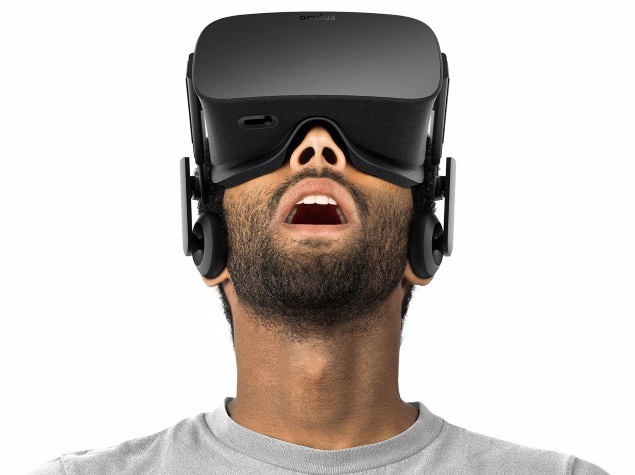- Home
- Wearables
- Wearables News
- Virtual Reality Could Help Treat Alcoholism: Study
Virtual Reality Could Help Treat Alcoholism: Study

The researchers said they are optimistic about the potential for virtual reality as a therapy for alcohol-use disorders.
"This technology is already popular in the fields of psychology and psychiatry," said senior researcher Doug Hyun Han from Chung-Ang University Hospital in Seoul, Korea.
"Virtual-reality therapy has been used to treat phobias and post traumatic stress disorder," Han said.
The idea is to expose people to situations that trigger fear and anxiety, in a safe and controlled space. Then, hopefully, they learn to better manage those situations in real life.
According to Han, less is known about whether virtual reality can help with substance use disorders. But there has been some evidence that it can reduce people's craving for tobacco and alcohol.
For the new study, his team recruited 12 patients being treated for alcohol dependence. All went through a week-long detox programme, then had 10 sessions of virtual-reality therapy done twice a week for five weeks.
The sessions involved three different virtual scenes one in a relaxing environment; another in a 'high-risk' situation in which the patients were in a restaurant where other people were drinking; and a third, 'aversive', situation.
In that aversion scene, patients were surrounded by the sights, sounds and smells of people getting sick from too much alcohol.
Before they began the programme, all of the patients underwent positron emission tomography (PET) and computerised tomography (CT) brain scans, which allowed the researchers to study the patients' brain metabolism.
It turned out that, compared with a group of healthy people, the alcohol-dependent patients had a faster metabolism in the brain's limbic circuit - which indicates a heightened sensitivity to stimuli like alcohol.
After the virtual-reality therapy, however, the picture changed. Patients' revved-up brain metabolism had slowed - which, Han said, suggests a dampened craving for alcohol.
According to Han, the therapy is a promising approach to treating alcohol dependence and that is partly because it puts patients in situations similar to real life and requires their active participation.
The findings were published in the Journal of Studies on Alcohol and Drugs.
For the latest tech news and reviews, follow Gadgets 360 on X, Facebook, WhatsApp, Threads and Google News. For the latest videos on gadgets and tech, subscribe to our YouTube channel. If you want to know everything about top influencers, follow our in-house Who'sThat360 on Instagram and YouTube.
Related Stories
- Galaxy S24 Series
- MWC 2024
- Apple Vision Pro
- Oneplus 12
- iPhone 14
- Apple iPhone 15
- OnePlus Nord CE 3 Lite 5G
- iPhone 13
- Xiaomi 14 Pro
- Oppo Find N3
- Tecno Spark Go (2023)
- Realme V30
- Best Phones Under 25000
- Samsung Galaxy S24 Series
- Cryptocurrency
- iQoo 12
- Samsung Galaxy S24 Ultra
- Giottus
- Samsung Galaxy Z Flip 5
- Apple 'Scary Fast'
- Housefull 5
- GoPro Hero 12 Black Review
- Invincible Season 2
- JioGlass
- HD Ready TV
- Laptop Under 50000
- Smartwatch Under 10000
- Latest Mobile Phones
- Compare Phones
- Huawei Pura 70 Pro+
- Huawei Pura 70 Ultra
- Tecno Camon 30 Premier 5G
- Motorola Edge 50 Fusion
- Oppo A1i
- Oppo A1s
- Motorola Edge 50 Ultra
- Leica Leitz Phone 3
- Asus ZenBook Duo 2024 (UX8406)
- Dell Inspiron 14 Plus
- Realme Pad 2 Wi-Fi
- Redmi Pad Pro
- Cult Shock X
- Fire-Boltt Oracle
- Samsung Samsung Neo QLED 8K Smart TV QN800D
- Samsung Neo QLED 4K Smart TV (QN90D)
- Sony PlayStation 5 Slim Digital Edition
- Sony PlayStation 5 Slim
- IFB 2 Ton 3 Star Inverter Split AC (CI2432C323G1)
- Daikin 1 Ton 3 Star Inverter Split AC (FTKL35UV16W+RKL35UV16W)

















